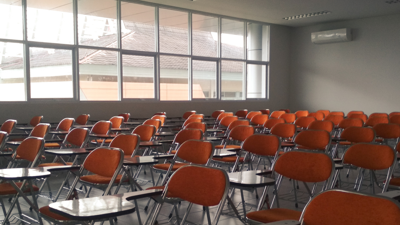1 Do you agree with the proposals for the headline accountability measures?
No. The Society welcomes a broader measure and also the inclusion of only GCSEs and other high value qualifications. The previous situation where some vocational courses could be reported as equivalents to multiple GCSEs was unhelpful. In some schools this limited the opportunity for pupils to study the full range of academic GCSEs.
The Society has one area of significant concern and a proposed small amendment that overcomes the concern.
This is in relation to the fact that young people can qualify for the ‘measure of 8’, without studying either a humanities subject (either geography or history) or a language at GCSE.
This is counter to the concept of a broad and balanced education and has the potential to close down options for young people at too early an age, rather than opening them up. It also runs counter to the spirit of the EBacc which has done so much to boost academically focused subject-based learning, including the study of geography and history – the ‘civilising’ subjects that are essential to a well-balanced education. For example, entry levels for geography GCSE have, following the introduction of the EBacc, reached their highest levels for more than 10 years, undoing much of the harm to the foundation subjects that was done by the current accountability measure and the way in which schools used it.
The Society suggests a small, but important, amendment to the proposed ‘measure of 8’. The Society believes the new measure should include a requirement for young people to study (alongside English and maths) at least one science, one modern or ancient foreign language and either history or geography at GCSE - within the group of their 8 qualifications. This would still leave plenty of capacity for those who (1) wished to specialise in all four separate sciences; or (2) study three arts or vocational subjects; or (3) top up’ with additional humanities or languages. However, it would secure breath and ensure all young people studied both a language and a humanity at GCSE, together with English, maths, a science and three other subjects/study areas.
The Society recognises that not every pupil will be able to achieve this breadth and range of study at Key Stage 4. However, we believe that our suggested amendment should be applicable to the majority of pupils.
4 Are there any other measures we should consider publishing?
The Society strongly supports the continuation of the EBacc and the reporting of pupils’ achievement across the family of EBacc subjects.
8 How should we ensure that achievement beyond formal qualifications is recognised?
The Society recognises that not every pupil will achieve formal qualifications at the end of Key Stage 4.
In addition, not everything that a pupil experiences or achieves at school can be readily recognised through formal qualifications. For example, geographical fieldwork is an opportunity for pupils to work in a team and undertake research tasks together. However, the Society does not believe it is the place of geography GCSE examinations to attempt to assess a pupil’s ability in teamwork.
The Society feels it is appropriate for all pupils to be provided with an end of Key Stage 4 statement which should recognise their abilities, experiences and contribution to school life. This should complement the reporting of formal qualifications and be provided for all pupils.
9 How can national sample tests best be introduced?
The Society notes the Department’s interest in the provision of sample tests, such as the recognised suite of international tests in English, maths and science.
The Society believes there is the need for a wider range of national sample tests to include tests on geography and history and potentially MFL.
The Society would welcome further discussions with the Department to explore how best this might be achieved for geography.
